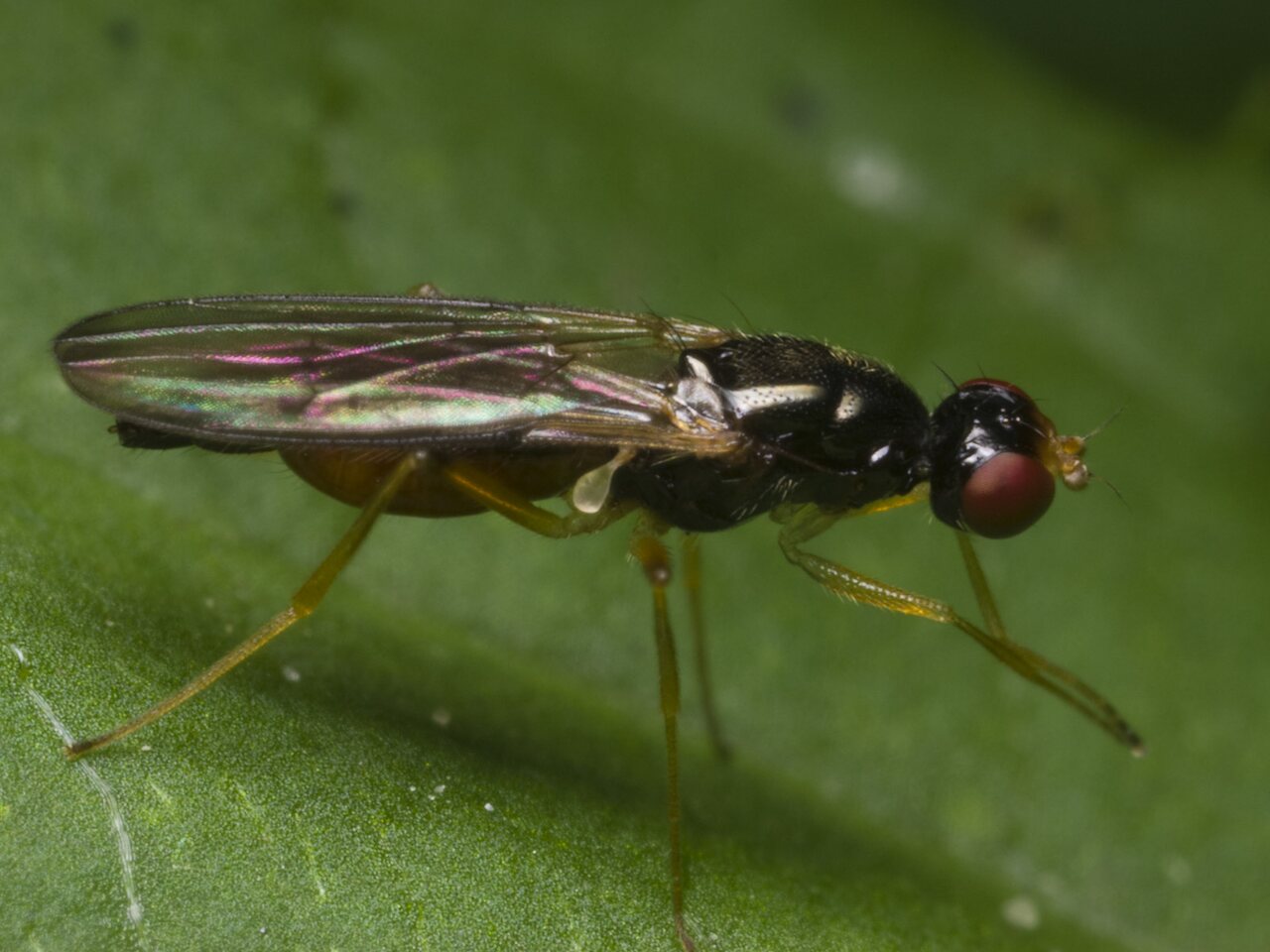
Strongylophthalmyia ustulata
- Aspen Walker
- pl.wikipedia.org/wiki/Strongylophthalmyia_ustulata
- flickr.com/photos/63075200@N07/albums/72157713201134543
- gbif.org/species/1566830
A species with a transpalearctic distribution, widespread in the temperate zone of Eurasia. This insect inhabits natural forests with a large amount of dead wood. It prefers moist, deciduous and mixed forests with aspen, especially those growing along watercourses in foothill and mountainous regions. In the lowlands, it chooses cooler sites, e.g. shaded by a dense layer of treetops or steep valley slopes. The larvae develop under the bark of rotting poplar logs . In Central Europe, adult insects are found from mid-June to the second half of August. Adults often perch on larger leaves of forest floor plants.
A rather small, slim, shiny-black acalypterate with yellow legs, antennae and anterior frons. There is a slight dark subapical ring on the hind femora. The wings have convergent veins R4+5 and M, and the wing tip is darkened. The female ovipositor is It perhaps most resembles a short-winged Tanypeza longmana (it was once placed n the Tanypezidae) or a member of the family Microspezidae or Psilidae.
‥
0 comments
Add a comment